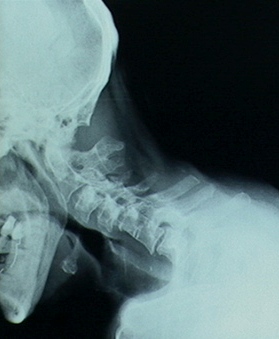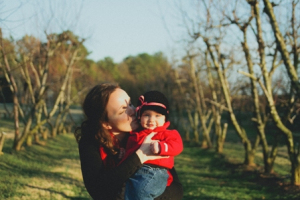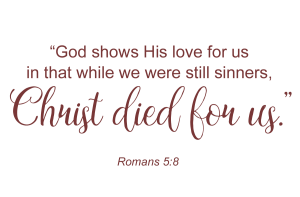Posture

I recently had an ugly fall while running. I lost a layer of skin on my hand, mobility of my jaw, and a modicum of dignity. I gained six stitches squarely at the base of my chin and a healthy fear of pavement. Months later, I’m grateful to report that the external injuries are no longer visible. My body had totally healed. Almost.
Despite my recovery, one nagging reminder of the painful incident remained. My jaw wouldn’t close completely – at least not without intentional effort. It’s amazing what we take for granted every day. Eyes that blink. Fingers that grasp. And a jaw that closes when not in use.
Weeks rolled into months. There was no longer pain in my jaw – just a nagging reminder that something wasn’t quite right. Surely time would heal that as well. When time didn’t heal, my dentist nudged me in the direction of a physical therapist.
I confess that the few minutes spent filling out paperwork were marked by a combination of pride and irritation. I’m rarely sick. This would eventually get better on its own. For crying out loud, I don’t even have a primary care doctor. Doesn’t that say something? I should have waited it out. I have better things to do with my time. Then the physical therapist walked through the door.
After asking the prescribed battery of questions and assessing my condition, she made a few, measured comments. If I didn’t deal with the cause behind the issue, permanent scar tissue could develop. Full healing might become impossible.
The recommended rehabilitation for my jaw included daily ice packs, isometric exercises, and the need to hold my head straight (rather than tipped forward). I read a lot during the day. A whole lot. Actually, most of my activities result in my head being tipped forward ever so slightly. Apparently, this didn’t help my jaw; rather it stretched out the very muscles needed to keep my jaw securely closed. If these actions didn’t remedy my problem, we’d have to resort to a high dose of topical steroids. “We’ll see,” I thought. After all, we were heading out of town for several days. Surely, it will get better on its own. Pride and denial make a powerful cocktail.
I promptly disregarded all instruction while on our trip, except I was intentional about correcting my posture. Head up, jaw back. It turns out that I didn’t need ice packs or exercises. I didn’t need steroids. Within days, the tension in my jaw had vanished. It closed easily and without effort. A change of a few degrees in posture had changed everything.
Some injuries are obvious. The gash in my chin and subsequent flow of blood made it clear that a visit to the emergency room was in order. Six stitches, and I was on my way toward healing. Other injuries are more subtle and easier to disregard. Like my achy jaw, they may not demand immediate attention, but if left untreated, long-term damage can occur.
I have “achy jaws” in many areas of life.
~ Relationships that aren’t completely healthy, but that I’ve chosen not to address. “It will get better over time. Surely.”
~ Envy of others who are smarter, more disciplined in their pursuit of fitness and nutrition, better parents, etc.
~ Laziness masked as busyness. If my life is full of (fill in the blank), I can’t possibly have time to attend to (fill in the blank).
The chronic, muted ache is a warning sign of a deeper problem. One that won’t go away with time and could prove to be insidious if left untreated. At the very least, it’s a problem that will prevent me from flourishing.
Yet if we’re willing to listen to the ache and have the courage to address the root cause, then there’s hope.
Sometimes hope comes in the form of excruciating surgery. Sometimes it’s found in years of adjustments and rehabilitation. In the midst of the uncertainty and suffering, we can take courage. We are under the tender care of the Great Physician.
But occasionally, our pain is more subtle. It’s the result of spiritual misalignment – the seemingly innocuous habit of looking down rather than looking up.
Sometimes hope comes from a change in posture.
 Julie Silander received her BS degree in Business Administration from Furman University, and she held a variety of roles in the banking industry before becoming a full-time mom. Julie and David have five children, and they have been friends of Barnabas for close to twenty years. Most recently, Julie has been intimately involved in the strategic planning for The Barnabas Center in preparation for the next phase of the ministry. She spends the bulk of her days schooling their three youngest children. She also writes regularly at www.greenertrees.net and is a contributor to Story Warren.
Julie Silander received her BS degree in Business Administration from Furman University, and she held a variety of roles in the banking industry before becoming a full-time mom. Julie and David have five children, and they have been friends of Barnabas for close to twenty years. Most recently, Julie has been intimately involved in the strategic planning for The Barnabas Center in preparation for the next phase of the ministry. She spends the bulk of her days schooling their three youngest children. She also writes regularly at www.greenertrees.net and is a contributor to Story Warren.









1 comment
Julie, I sent you a message on FB and it’s in your “Other” folder. Please read it! I loved this article!